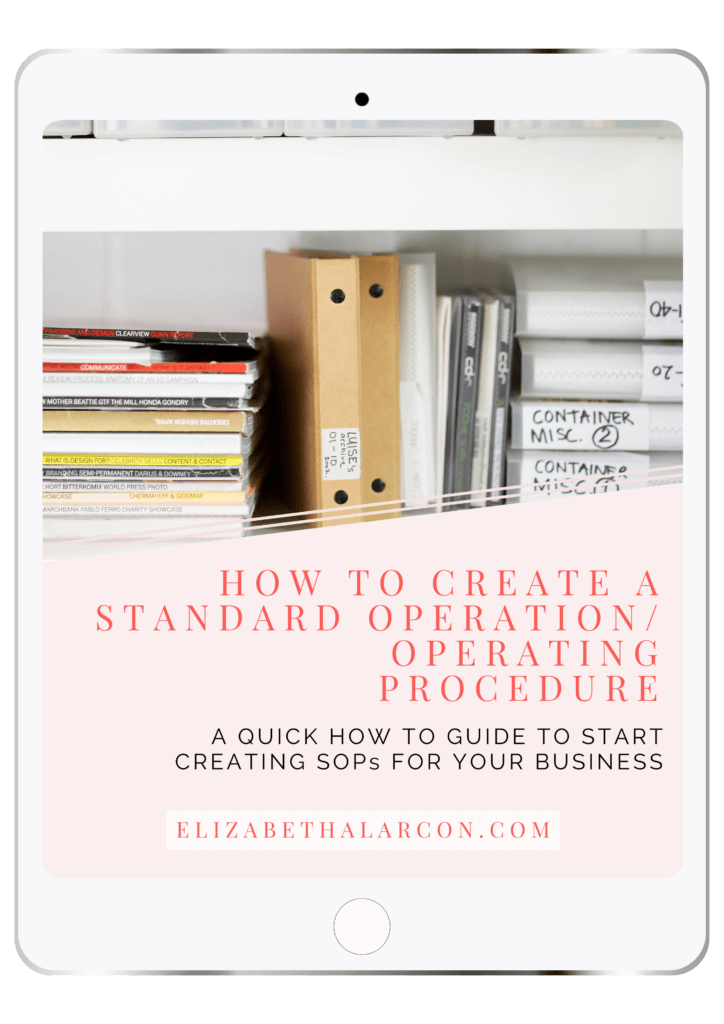Finding the Balance Between Building a Successful Business and Financial Empowerment: Building a Business That Suits Your Lifestyle
Every solopreneur small business owner dreams of growing their business into bigger and more successful. But, before taking that leap, it is important to think twice and understand the pros and cons of scaling up. The idea is not just to build a big business—it’s about creating one that fits your lifestyle and brings you satisfaction.
The big question is, are you ready to build a multimillion-dollar company or one that keeps you above comfortable? The answer isn’t always clear, so it’s important to really evaluate your goals and ambitions. What kind of lifestyle do you want? Do you have the resources to grow your business in the way you want?
There are pros and cons to any approach, so it’s important to weigh your options carefully. Building a bigger business means more responsibility and more risk, but also has the potential for higher rewards. On the other hand, staying small can mean fewer headaches and more freedom, but could potentially leave you financially vulnerable.
To help you figure out if scaling up your business is the right choice for you, here are 7 questions to ask yourself to get you started:
1. Are the current profits from my business enough to support my desired lifestyle?
The first question to ask yourself is if the current profits from your business are enough to support your desired lifestyle. If you’re comfortable with the amount of money you make, then scaling up may not be necessary, and it could be wiser to stay small and focus on optimizing your current processes. This way you can maximize the freedom that comes with being a small business owner and enjoy the lifestyle that you have created.
On the other hand, if your current profits are not enough to cover expenses and achieve the lifestyle you want, then it might be time to look at expanding your business. This means taking on more responsibility and risk, but also has the potential for higher rewards. With increased profits, you can further invest in your business, hire more staff or buy necessary equipment – all of which will help you reach the goals that you have set for yourself and your business.
2. What other resources do I need to grow my business?
The next step is to assess what resources you will need to grow your business. Depending on the type of business and the goals you have for growth, this could be anything from additional capital or staff, technology upgrades, marketing strategies or even a shift in mindset and approach.
It’s important to take time to analyze your current resources and map out a plan for what you will need in order to reach your desired targets. Many small business owners make the mistake of not taking this step, which can lead to unforeseen costs and missed opportunities.
Once you have an idea of the resources that are required, it’s essential to create a budget and timeline that will help you achieve your goals without over-stretching yourself. This is especially important if you’re looking to scale up quickly, as it’s easy to get overwhelmed by the sheer amount of work involved in growing your business. Taking small steps and setting realistic targets is key to successfully scaling up without sacrificing quality.

3. Do I have the skills to make it happen?
The next question to ask yourself is whether or not you have the necessary skills to make your growth dreams a reality. Growing a business takes multiple skills and often involves tasks that are outside of your comfort zone. It is important to assess which new competencies you need in order to reach your desired goals, as well as how you can develop them.
For some, this could mean taking classes or enrolling in online courses that can help you hone your skills and expand your knowledge. Alternatively, if you don’t have the time or money to invest in further education, then networking with other business owners and tapping into their experience could be a great way to get the skills you need.
No matter which skills you’re looking to develop, it is important to remember that growing a business takes time and effort, and that the process will be different for each individual. Be sure to take your own unique needs into account when planning how to scale up, as this will help ensure that you have the skills necessary to make it happen.

4. Am I prepared to take on more responsibility and commitment in order to grow my business?
Another question you need to ask yourself before scaling up your business is whether or not you’re willing and able to take on more responsibility. Growing a business involves taking risks and making decisions that could potentially have far-reaching consequences, so it’s important to weigh up the pros and cons of doing so in order to make an informed decision.
It’s also essential to consider whether or not you have the capacity and commitment to take on more responsibility. Growing a business often means taking on extra work and additional commitments, so it’s important to ensure that you are prepared for this before diving in. Additionally, as your business grows, so will your responsibilities, so it is important to consider how much time you will have to dedicate to the process and whether or not you can realistically commit to it.
Finally, when taking on more responsibility, remember that communication is key. Having a strong support network of family and friends who understand the journey you are embarking on can be invaluable in helping you through process. Additionally, keeping your stakeholders informed of any changes and decisions you make is essential in order to ensure that everyone is on the same page.
5. Is this something I'm passionate about enough to make it worth the effort?
The most important question to ask yourself before scaling up your business is whether or not you’re truly passionate about it. Growing a business can be an arduous process and requires tremendous commitment, so it is essential that you are driven by passion rather than obligation in order to make the journey worthwhile.
Ask yourself if this is something you would be willing to work on and develop even if it weren’t going to make you money. Consider whether or not the idea of growing your business excites you, and ask yourself what the ultimate goal is behind scaling up – is it simply to increase profits, or are there other long-term goals that motivate you?
6. Are there other options that could provide similar financial rewards without having to scale up as much?
When deciding whether or not to scale up your business, it is important to consider all the potential options available to you. There may be other paths that can provide similar financial rewards without having to take on as much risk and responsibility as a full-scale expansion would require.
For example, outsourcing certain aspects of your business or partnering with other businesses may enable you to reach a larger customer base without having to expand your operations. Additionally, forming strategic partnerships or alliances with like-minded business owners could help you tap into new markets, grow your network and increase profits in a more streamlined manner.
It is also important to consider how advantageous scaling up will be for you personally. Scaling up your business may provide you with additional financial security, but it is also important to remember that success brings its own set of challenges and responsibilities. Ultimately, only you can decide whether or not the rewards are worth the effort – so make sure you weigh up all of your options before committing to an expansion.

7. What do I need to do to make sure my business is ready for scaling up?
Before embarking on a full-scale expansion, it is essential to make sure that your business is in the best possible shape. This can involve reviewing and revising processes such as customer service, marketing strategies and financial planning in order to ensure that everything runs smoothly.
It is also important to ensure that your business plan, strategies and objectives are all up-to-date and relevant, as this will help you remain focused on what needs to be done in order to make the expansion successful. Additionally, it is essential to remember that scaling up requires additional resources such as staff, capital and time – so make sure that you are well-prepared to manage the process.
Once you have established your strategies and objectives, it is important to monitor and evaluate them regularly in order to ensure that your business is on track for success. This means staying up-to-date with industry trends and creating accurate forecasts – so make sure to familiarize yourself with industry data in order to ensure that your business is ready for the next step.
Build a Business That Suits Your Lifestyle, Not Just for More Money
The journey of owning and scaling up a business can be immensely rewarding – but it is important to remember that money should not be the only motivating factor. When deciding whether or not to scale up your business, it is essential to consider what kind of lifestyle you would like for yourself as an entrepreneur.
For example, if you would prefer to focus on quality over quantity and prioritize your own wellbeing, it is likely better to stay small and maintain a manageable workload. On the other hand, if you have ambitious goals that require additional resources and staff, a larger-scale expansion could be the best option for you.
Ultimately, it is important to consider both sides of the equation and build a business that suits your lifestyle, not just for more money. This will enable you to remain focused on what is important to you while still achieving success in the long-term. By taking the time to consider all of your options, you can ensure that your business is built on a solid foundation and will be ready to take off when the time is right.
Finding the Balance Between Success and Fitting Your Lifestyle
Finding the balance between success and fitting your lifestyle is a constant challenge for entrepreneurs. On one hand, they want to build a successful business that can provide them with financial stability and growth potential. On the other hand, they also want to make sure that their business fits into their life and doesn’t take too much time away from their personal and family life.
The key to finding the right balance is to establish clear goals and objectives that are realistic, achievable, and tailored to your individual lifestyle requirements. This means understanding what you value most in life, such as time with your family or pursuing hobbies outside of work, and making sure that these factors remain at the forefront of your business decisions. Additionally, it is important to establish boundaries between work and life in order to prevent burnout and ensure that you remain both productive and happy.
Finally, it is essential to remember that success can come in many forms – not just financial wealth or status. As a small business owner, you have the power to create a business model that works for you and focuses on what matters most to you. Whether it’s working from home, spending more time with family, or taking more risks – there is no “one size fits all” approach when it comes to achieving success as a solopreneur.
Why I'm choosing to be somewhat of a solopreneur, for now.
Weighing the pros and cons of scaling up my business and carefully considering my lifestyle, I decided that staying somewhat small is right for me – at least for now. As a solopreneur, I have the freedom to make decisions quickly, pursue projects that excite me, and maintain a flexible schedule that allows me to take care of myself and my family.
Additionally, I am able to control certain aspects of the business in a way that would not be possible with more employees or resources. I did have a few VAs, but it didn't quite work out for me. That isn't to say that I won't ever take on more staff, but for now I'm content with the level of growth that my business is at. I rely on automation and outsourcing to stay efficient and it helps me focus on the aspects of the business that I am passionate about.
I'm also aware that staying small has its own challenges, such as limited resources or time constraints. However, having a clear understanding of what matters most to me and creating boundaries between work and life helps me to maintain a sense of balance and control, even with limited resources.
This means that I can keep costs low, give personalized attention to each client, and experiment with new approaches without worrying about failure. Most importantly, being a solopreneur allows me to focus on my health, relationships and hobbies without sacrificing the success of my business.
Here's what is important to me in no particular order:
- Self Care: I prioritize my self-care by dedicating time to multiple hobbies that bring me joy. I believe that my self-care routine is priceless and I am unwilling to compromise it for any amount of money.
- Travel: However, I want, whenever I want.
- Time with my favorite people: I have relatives living in two different countries and three different states, and my friends are scattered all over the place. Therefore, I need to travel frequently to be able to spend time with them. Also, it is crucial for me to spend quality time with my spouse. Date nights, weekend getaways, and snuggles on the couch for movie nights. Give it to me.
At the end of the day, it is important to remember that there is no “right” or “wrong” decision when it comes to building a business. Whether you decide to stay small or scale up, the most important part is that you make a conscious decision based on what matters most to you and take steps towards achieving success without sacrificing your wellbeing or your lifestyle.
Conclusion
Ultimately, the decision to stay small or scale up is a very personal one and should be based on your individual lifestyle needs and preferences. There are pros and cons of both approaches, but as long as you take the time to establish clear goals and objectives that match your values, you will be able to build a business model that works for you. Remember that success can come in many forms, and it’s important to create a business that makes you happy and doesn’t feel like work.
Finally, it’s important to stay focused and remember that it takes time to build a successful business. Whether you decide to stay small or scale up, the most important thing is that you remain true to yourself and your values throughout the process. With commitment and dedication, anything is possible!
THIS SITE USES AFFILIATE LINKS. THERE’S NO EXTRA COST TO YOU, BUT I RECEIVE A SMALL COMMISSION WHEN YOU USE THEM.
PIN ME!












💁🏻♀️ Community Guidelines
To ensure a positive and respectful environment for everyone, please take a moment to review our Community Guidelines. Following these guidelines helps us maintain a safe space for all.